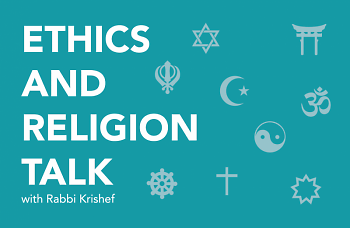What is the role of autonomy in medical care? Do your religious beliefs allow you to refuse simple medical procedures (i.e., dental care, skin biopsies, colonoscopies), even though such refusal might lead to major medical problems or death? What about serious or invasive procedures that are clearly life-saving, but involve difficult recovery or ongoing treatment, like dialysis or surgeries requiring a colostomy?
Rev. Ray Lanning, a retired minister of the Reformed Presbyterian Church of North America, responds:
The word “autonomy” has no place in the Christian’s vocabulary. “None of us liveth to himself, and no man dieth to himself … whether we live therefore, or die, we are the Lord’s” (Romans 14:7, 8). As those who belong body and soul to Jesus Christ, our lives are not ours to do with as we see fit. Presbyterianism teaches that in the Sixth Commandment (“Thou shalt not kill,” Exodus 20:13), God requires us to “preserve the life of ourselves and others” by all lawful means, including “a sober use of meat, drink, physick, sleep, labor, and recreations” (Larger Catechism, Q. 135). Note: “Physick” is the practice of internal medicine, the work of “physicians.” Neglecting routine medical care or refusing life-saving procedures would in most cases be sin against the law of God and human folly. The only exception would be cases in which there is no reasonable hope of a cure and we are in a desperate fight to stave off the inevitable. As Charles Hodge said, “A man who is not prepared to die, is not prepared to live.” Even in such cases, it is right and wise to accept palliative care to ease our own sufferings and the burden of them imposed on our loved ones.
Fred Stella, the Pracharak (Outreach Minister) for the West Michigan Hindu Temple, responds:
There is very little in Hinduism that “allows” or “disallows” adherents to do or not. As in most ancient religions that are embraced by people of many levels of education and exposure to science, it’s possible that some populations in rural India and Nepal might still be holding onto superstitions that could impede someone to refuse a test or treatment. I have no personal knowledge of this scenario, but wouldn’t be surprised if this were the case. But I say with great confidence that Hindus in the US live lives that are guided by the latest and best medical science available. While many will also include Ayurvedic (herbal) therapies, this mindset does not reject allopathic (standard) treatments.
The Reverend Colleen Squires, minister at All Souls Community Church of West Michigan, a Unitarian Universalist Congregation, responds:
Unitarian Universalists fully support full medical care autonomy for adults. We are strong believers in choice, especially when it comes to medical decisions.
My response:
The general rule is that Jewish medical ethics require us to care for our body. If we are sick and can heal that which ails us, we are required to seek medical attention. This includes routine physicals, dental care, proper diet and exercise, and doctor-recommended medical checks like colonoscopies and simple biopsies. But when we dig a bit deeper, we find support for autonomy in medical decision-making when the outcome of a procedure is not clear or when one has a terminal illness.
A clear case in which a person does not have autonomy concerns a pregnant woman diagnosed with a form cancer that, if treatment is begun right away, is curable. The treatment, however, will require the termination of the pregnancy. Jewish medical ethics prioritizes the life of the mother over the life of the child in utero, so in this case an abortion is mandatory; the woman does not [have] the autonomy to give up her life to continue the pregnancy. Similarly, vaccinations for common childhood afflictions like measles, mumps, rubella, polio, and others, which save lives and protect the health of others as well, are considered mandatory by the vast majority of Jewish ethicists.
On the other hand, a cancer patient who is given the option of a procedure which has only a small chance of extending one’s life has the autonomy to refuse. And a patient with an end-stage terminal illness has broad autonomy to refuse any medical treatment, even treatment for a non-related, typically easily curable, illness (such as pneumonia), since it will ultimately not be beneficial against the terminal diagnosis. Similarly, if a person is unable to swallow due to a progressive illness such as ALS or an affliction such as a stroke, they have the autonomy to continue oral feeding as long as possible but refuse other options such as a feeding tube or nutrition by IV. In this case, many Jewish ethicists give the patient the autonomy to allow their bodies to die naturally rather than extending the dying process.
This column answers questions of Ethics and Religion by submitting them to a multi-faith panel of spiritual leaders in the Grand Rapids area. We’d love to hear about the ordinary ethical questions that come up in the course of your day as well as any questions of religion that you’ve wondered about. Tell us how you resolved an ethical dilemma and see how members of the Ethics and Religion Talk panel would have handled the same situation. Please send your questions to [email protected].
The Rapidian, a program of the 501(c)3 nonprofit Community Media Center, relies on the community’s support to help cover the cost of training reporters and publishing content.
We need your help.
If each of our readers and content creators who values this community platform help support its creation and maintenance, The Rapidian can continue to educate and facilitate a conversation around issues for years to come.
Please support The Rapidian and make a contribution today.
